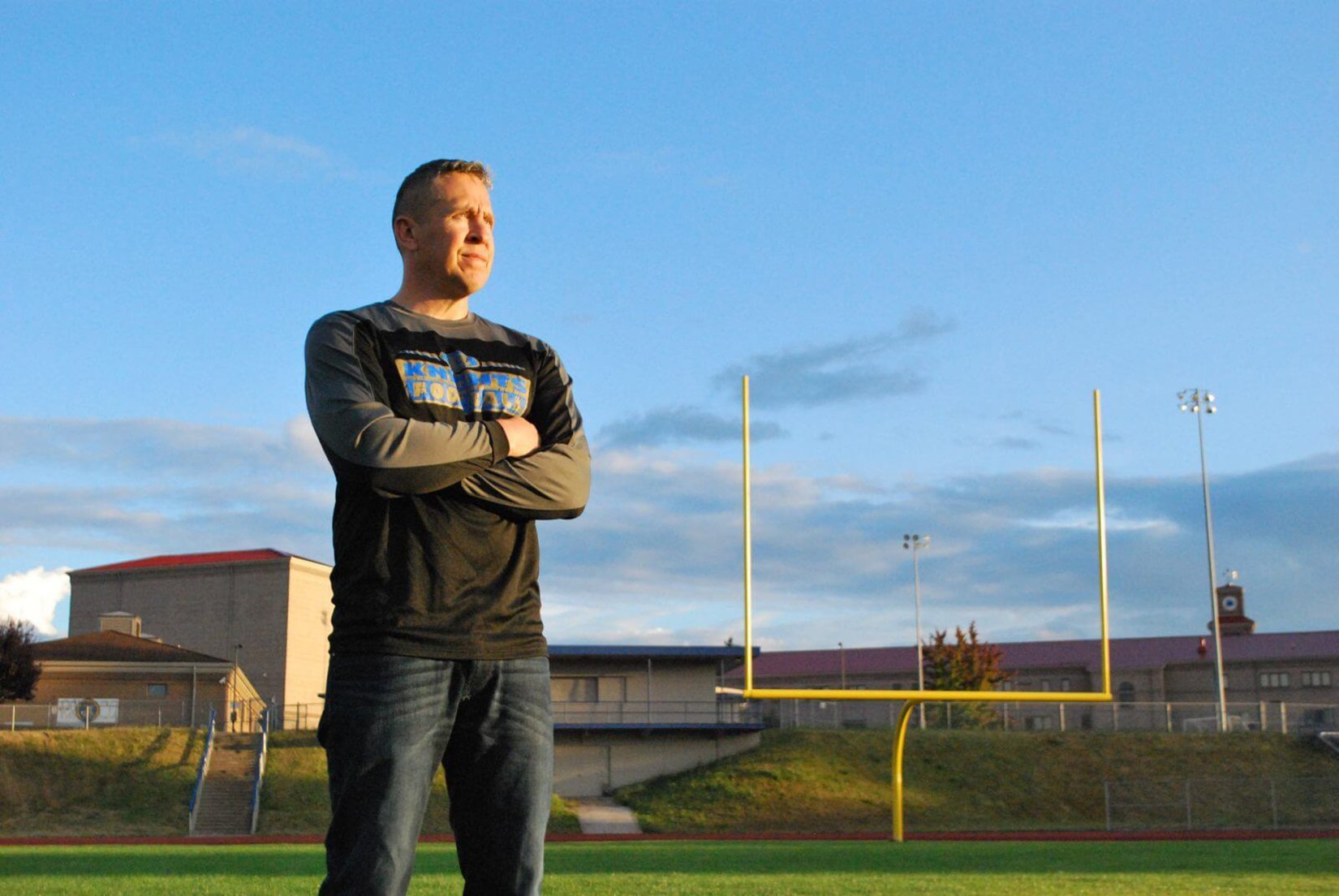
WASHINGTON — Joseph Kennedy, a high school assistant football coach who was placed on leave eight years ago for praying on the field with players after games, was back coaching again when the team’s practices started on Aug. 16.
Last year, he won his case before the Supreme Court which ruled that the free exercise and free speech clauses of the First Amendment protected Kennedy’s prayer with the players because he was an individual engaging in religious expression.
In March, Kennedy was reinstated to his former coaching role at Bremerton High School, outside of Seattle. He also won a nearly $2 million settlement that the Bremerton School District agreed to for Kennedy’s attorney fees.
A statement by the Bremerton School District said it would fully comply with the Supreme Court’s decision. It also said it “remains steadfast in its commitment to respecting the rights and religious freedom of students, families, and school staff, and to keeping football games, and all school events, safe for the students we serve.”
The school district added that it looked forward to “moving past the distraction of this nearly eight-year legal battle so that our school community can focus on what matters most: providing our children the best education possible.”
Kennedy told WTVG, an ABC affiliate in Toledo, Ohio, that his lawsuit was “only asking for two things. That I was to be able to be a coach and able to pray after a football game. That’s what they’ve given back to me, and I’m looking forward to doing that.”
In the Supreme Court’s ruling on this case, the justices said the coach had the right to pray on the football field after games because these prayers were private speech and did not represent the public school’s endorsement of religion.
“The Constitution and the best of our traditions counsel mutual respect and tolerance, not censorship and suppression, for religious and nonreligious views alike,” said the court’s majority opinion.
It also emphasized that “respect for religious expressions is indispensable to life in a free and diverse republic — whether those expressions take place in a sanctuary or on a field.”
Kennedy claimed that his postgame prayers on the field cost him his job. He said he had been told by school district officials to stop praying on the 50-yard line, and he refused. When his contract was not renewed, he sued the school for violating his First Amendment rights.
During oral arguments, several justices emphasized that private speech is still private, and protected by the First Amendment, even if it takes place on public grounds. But others pointed out that private prayer on the field also could seem coercive because players could feel like they should participate.
An attorney for the school district argued that the coach’s prayers violated the Constitution’s establishment clause, which is often cited to prohibit prayer in public schools.
After the court’s decision, New York Cardinal Timothy Dolan, chairman of the U.S. Conference of Catholic Bishops’ Committee for Religious Liberty, said the ruling “to prevent the forced expulsion of voluntary prayer from public life is a major victory.”

This is a great victory against those who interpret our Bill of Rights as “Protection FROM Religion” rather than its intent to provide a free and open society where the expression of one’s faith, essentially who they are, is inviolately protected.
I hope all the online Tablet readers leave a comment to show their approval, otherwise, the next time an issue like this comes up we may find our expression of faith being limited.